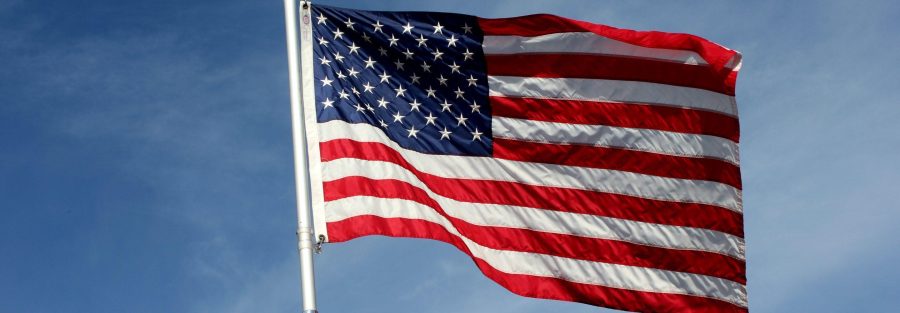With Donald Trump projected to take office again in 2025 after winning the 2024 U.S. presidential election, many Nigerians aspiring to immigrate to the United States may be wondering how this will affect immigration policies. Trump’s first tenure was marked by significant changes, many of which prioritized stricter control over immigration. As we look ahead to his second term, it’s essential to understand what potential Nigerian immigrants can expect in terms of visa applications, residency programs, and overall immigration policy under his leadership.
While the final details of Trump’s immigration agenda for 2025 are still unclear, we can anticipate some of the policy directions based on his first term and the campaign promises he made. Here’s a breakdown of the key immigration policies that could impact Nigerians looking to live, work, or study in the United States.

Key Areas of Focus for a Trump Presidency
1. Tougher Visa and Immigration Regulations
Trump’s first presidency was marked by a tightening of visa regulations, and we can expect more of the same in his second term. Specifically, Nigerian nationals looking to travel to the U.S. for business, tourism, or education may face stricter scrutiny and longer processing times.
- Tourist and Business Visas (B1/B2): For Nigerians seeking to travel to the U.S. for short-term business or tourism, expect more stringent requirements during the application process. Trump’s administration may demand additional documentation to prove the purpose of your visit, your financial ability to support yourself, and your intent to return to Nigeria after your visit.
- F1 Student Visas: Although the U.S. has historically been a top destination for Nigerian students, Trump’s administration could continue to impose greater scrutiny on student visa applicants. Expect higher chances of visa denials unless you can clearly demonstrate that you’re a serious student and that your studies won’t lead to long-term employment opportunities in the U.S. Additionally, there might be an increased focus on limiting the number of international students in certain fields, especially those perceived to be in competition with U.S. workers.
- H-1B Work Visas: The H-1B visa program, which allows U.S. employers to hire foreign workers in specialty occupations, is likely to face more restrictions. Trump has previously pushed for a merit-based immigration system that would prioritize high-skilled workers in sectors like tech, engineering, and healthcare, and this could limit the availability of work visas for Nigerians in other sectors.
2. Green Card and Family-Based Immigration Restrictions
Trump has been vocal about reducing the number of immigrants coming to the U.S. through family-based sponsorships. As president, he may push for significant reforms to family-based immigration and employment-based Green Cards, which could impact Nigerian families seeking to reunite or individuals looking to obtain permanent residency.
- Family-Based Immigration: Under Trump, there could be stricter limits on how many family members can immigrate based on a sponsor’s status. In particular, the focus would be on reducing chain migration, which allows U.S. citizens and permanent residents to sponsor extended family members like parents, siblings, and adult children.
- Merit-Based Immigration System: Trump has long argued for a merit-based immigration system that prioritizes applicants based on skills, education, and job prospects rather than family connections. For Nigerians, this could mean a higher emphasis on highly-skilled professionals—especially those in tech, engineering, finance, and healthcare—who can fill specific labor shortages in the U.S. However, it could also make it harder for individuals without specialized skills or higher education to gain entry to the U.S.
- Public Charge Rule: Trump’s administration attempted to enforce a “Public Charge” rule that would make it more difficult for individuals to gain permanent residency if they are likely to use public benefits (like food assistance or housing support). This could lead to increased scrutiny of applicants’ financial situations, particularly for Nigerian immigrants seeking family reunification or Green Cards.
3. Immigration Enforcement and Border Security
One of Trump’s signature policies was a focus on border security, and it is expected that this will continue under his second term. Nigerians seeking to enter the U.S. may face more rigorous border checks and immigration enforcement during their travels.
- Increased Border Patrol: Trump will likely continue to bolster the U.S.-Mexico border and expand immigration enforcement. While this will primarily impact countries that share borders with the U.S., Nigerian nationals could still feel the ripple effects in the form of longer processing times and more stringent screening for visa applicants.
- Travel Bans and Restrictions: During his first presidency, Trump imposed a travel ban that included several countries, including Nigeria, temporarily blocking them from obtaining certain U.S. visas. While the ban was lifted during the Biden administration, it’s possible that Trump could reinstate travel restrictions for Nigeria or other countries that he deems to pose a national security risk. Potential Nigerian immigrants should monitor the situation closely for any future announcements.
4. The Future of the Diversity Visa (DV) Lottery
The Diversity Visa (DV) Lottery program, which allows individuals from countries with low rates of immigration to the U.S. to apply for a Green Card, may be at risk under Trump’s leadership. While the program was not eliminated during his first term, Trump has consistently criticized it, and his administration explored ways to end it.
- Impact on Nigerians: Nigeria, which has one of the largest populations of DV Lottery applicants each year, could be significantly impacted if Trump pushes to abolish or severely limit the program. If the DV Lottery is cut, Nigerians who typically rely on this program to gain entry to the U.S. would need to explore other immigration pathways, such as employment or family-based visas.
5. What Might Stay the Same
While the second Trump presidency is likely to bring about significant changes in immigration policy, there are a few areas where Nigerian immigrants can expect continuity:
- U.S. Student Visa Programs: Despite the tougher regulations, the U.S. will likely continue to welcome international students, including Nigerians, in universities and colleges across the country. The U.S. remains a top destination for education, and Nigerian students may still find opportunities, especially in fields that align with U.S. labor needs.
- Tech, Health, and Engineering: Trump’s focus on merit-based immigration means that Nigerian professionals in high-demand fields like technology, engineering, and healthcare could still find ways to migrate to the U.S. through employment-based visas and temporary work permits.
How to Prepare for Immigration Under Trump’s 2025 Administration
If you’re a Nigerian planning to immigrate to the U.S. during Trump’s second term, it’s important to stay informed and prepared for potential changes to U.S. immigration laws. Here are some steps you can take:
- Focus on Education and Skills: If you plan to immigrate based on a work visa, now is the time to invest in education and professional development. High-skilled workers in sectors like tech, healthcare, and engineering will likely have more opportunities under a merit-based immigration system.
- Stay Informed About Policy Changes: Immigration policies can shift quickly. Make sure you regularly check official U.S. government websites and consult with immigration lawyers to understand how any changes could affect your immigration plans.
- Consider Alternative Pathways: With potential cuts to the Diversity Visa Lottery and tighter family reunification rules, Nigerians should explore other options for immigration, such as employment-based Green Cards or student visas, which may still offer opportunities.



